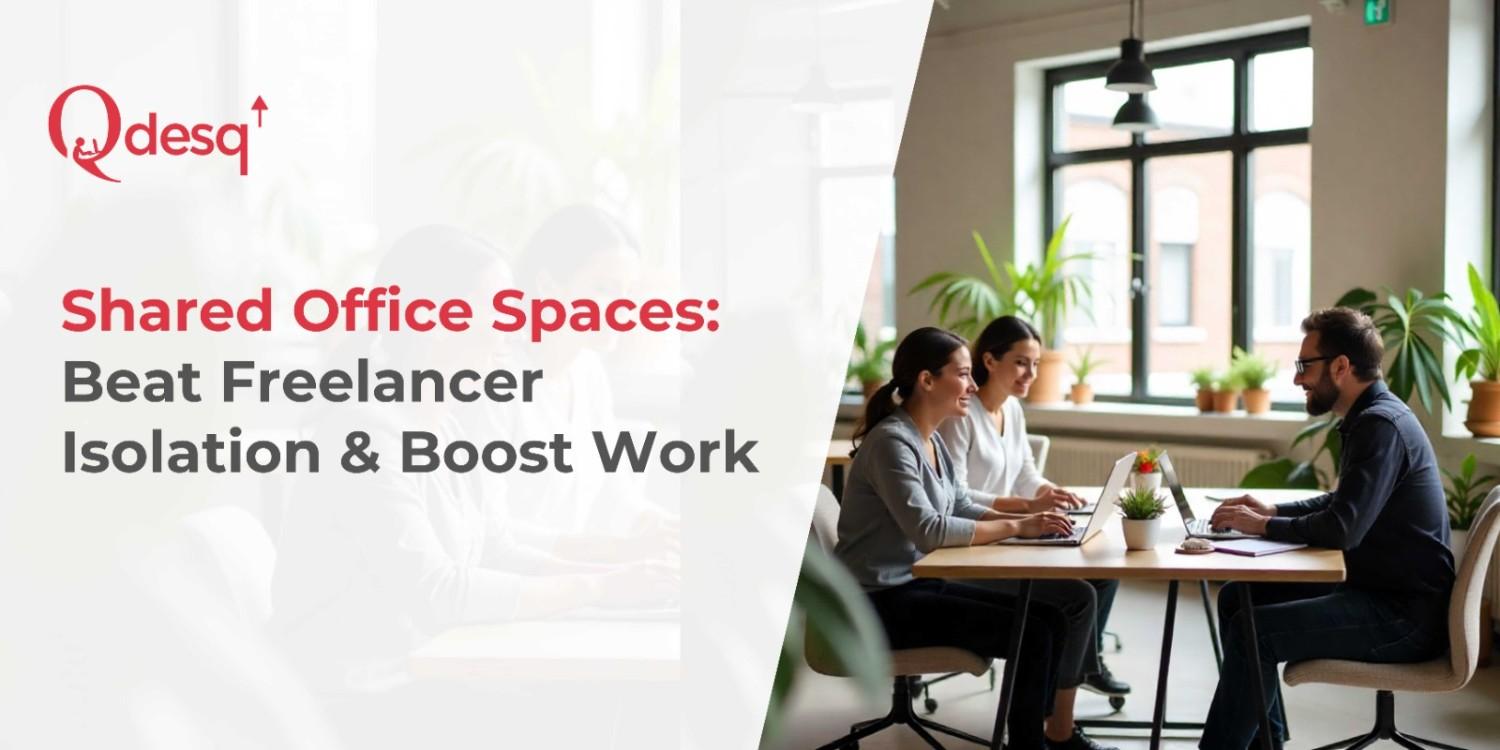Freelancing offers unbeatable freedom in choosing hours, working remotely, and shaping your career on your terms. Yet, one of the biggest hidden challenges freelancers face is isolation. Without the buzz of a team or the casual interactions of an office, loneliness can creep in, sapping motivation and productivity. Thankfully, shared office spaces have emerged as a game-changer, providing freelancers with connection, community, and a professional environment designed to boost both well-being and work output.
Here’s how shared office spaces help freelancers overcome isolation, and why they should be a top consideration for every freelancer looking to thrive.
The Freelancer Isolation Challenge
- Freelancers mostly work remotely and solo, leading to social disconnection.
- Lack of everyday casual interactions causes feelings of isolation.
- Isolation negatively impacts mood, creativity, and motivation, and can lead to burnout.
- Online networking and virtual chats do not fully replace in-person human connections.
- Physical separation means missing out on office culture and spontaneous social support.
- Prolonged isolation increases stress, anxiety, and hampers productivity.
- Lack of face-to-face feedback limits collaboration and professional growth.
- Blurred boundaries between work and personal life worsen loneliness.
Shared Office Spaces: A Perfect Antidote
Shared offices, often referred to as coworking spaces, provide freelancers with a focused and professional environment to work in, allowing them to collaborate with a variety of professionals.
These spaces act as vibrant communities rather than just desks and chairs. Regularly interacting with others in person helps freelancers fulfil a basic human need for connection and reignites their passion for their work.
Freelancers can choose flexible membership plans, paying only for the time they need, and gain access to amenities like high-speed internet, meeting rooms, quiet focus zones, and events designed to build community. This blend of flexibility and structure is ideal for the freelancer lifestyle.
Building a Supportive Community
One of the main advantages of coworking spaces is the chance to form genuine connections in a natural and easy way. Instead of asking strangers for virtual meetings, freelancers find themselves casually chatting over coffee or sharing a lunch table. These spontaneous interactions create a sense of belonging and camaraderie.
Within this supportive community, freelancers gain not just social connection but also emotional support. Sharing challenges and successes with others who are familiar with the freelance lifestyle helps to directly reduce feelings of loneliness by fostering a sense of motivation and support.
Networking and Collaboration Opportunities
Shared spaces offer rich networking ecosystems. Freelancers meet professionals from various industries, opening doors for collaboration, partnerships, and new business opportunities. Casual encounters can lead to project collaborations or referrals that wouldn’t happen when working from home in isolation.
Moreover, many coworking spaces organise formal meetups, workshops, and social events that facilitate skill-sharing and professional growth, widening freelancers’ horizons far beyond their solo practices.
Enhanced Productivity and Work-Life Balance
Many freelancers struggle to stay disciplined at home due to distractions or blurred work-life boundaries. Shared offices create a professional atmosphere that encourages focus and structure without feeling restrictive.
Having a designated workspace helps freelancers maintain a routine. Going to work becomes a clear mental signal to focus, and leaving the space at the end of the day helps separate work and personal life, reducing burnout risk. Dedicated quiet zones within coworking spaces offer distraction-free environments ideal for deep work or important client calls, something difficult to achieve at home.
Access to Resources and Amenities
- Freelancers working solo handle all office logistics themselves—buying equipment, managing internet, cleaning, and repairs.
- Shared office spaces take care of these operational tasks, letting freelancers focus fully on their work.
- Amenities include high-speed internet, printers, scanners, and conference rooms available on demand.
- Professional-grade meeting rooms enhance credibility when hosting clients.
- Additional perks like coffee bars and kitchen facilities improve comfort and work experience.
- Access to resources is cost-effective compared to maintaining a private office or home setup.
- These facilities boost freelancers’ productivity and present a professional work environment.
Flexibility That Matches Freelance Life
Freelancers juggle varying workloads and schedules, which makes rigid office leases impractical. Shared offices shine with their flexible memberships—from hourly passes to full-time access—allowing freelancers to scale their workspace needs up or down as projects require.
This flexibility, combined with round-the-clock access at many coworking spaces, means freelancers can work when, where, and how they want without compromising on professionalism or community.
Conclusion: Choose Connection, Choose Growth
Freelancer isolation is a real challenge, but not an insurmountable one. Shared office spaces provide a vibrant solution that combines community, professionalism, flexibility, and resources. By working alongside like-minded peers, freelancers replace loneliness with connection, boost their motivation, and open the door to collaboration and growth.
If freelancing is your path, consider integrating shared office spaces into your routine. The right workspace is not just about desks or wifi—it’s about joining a community that fuels your creativity, inspiration, and success.
Ready to break free from isolation and boost your freelance career? Discover the best shared office spaces near you with Qdesq and find a workspace that works as hard as you do.











